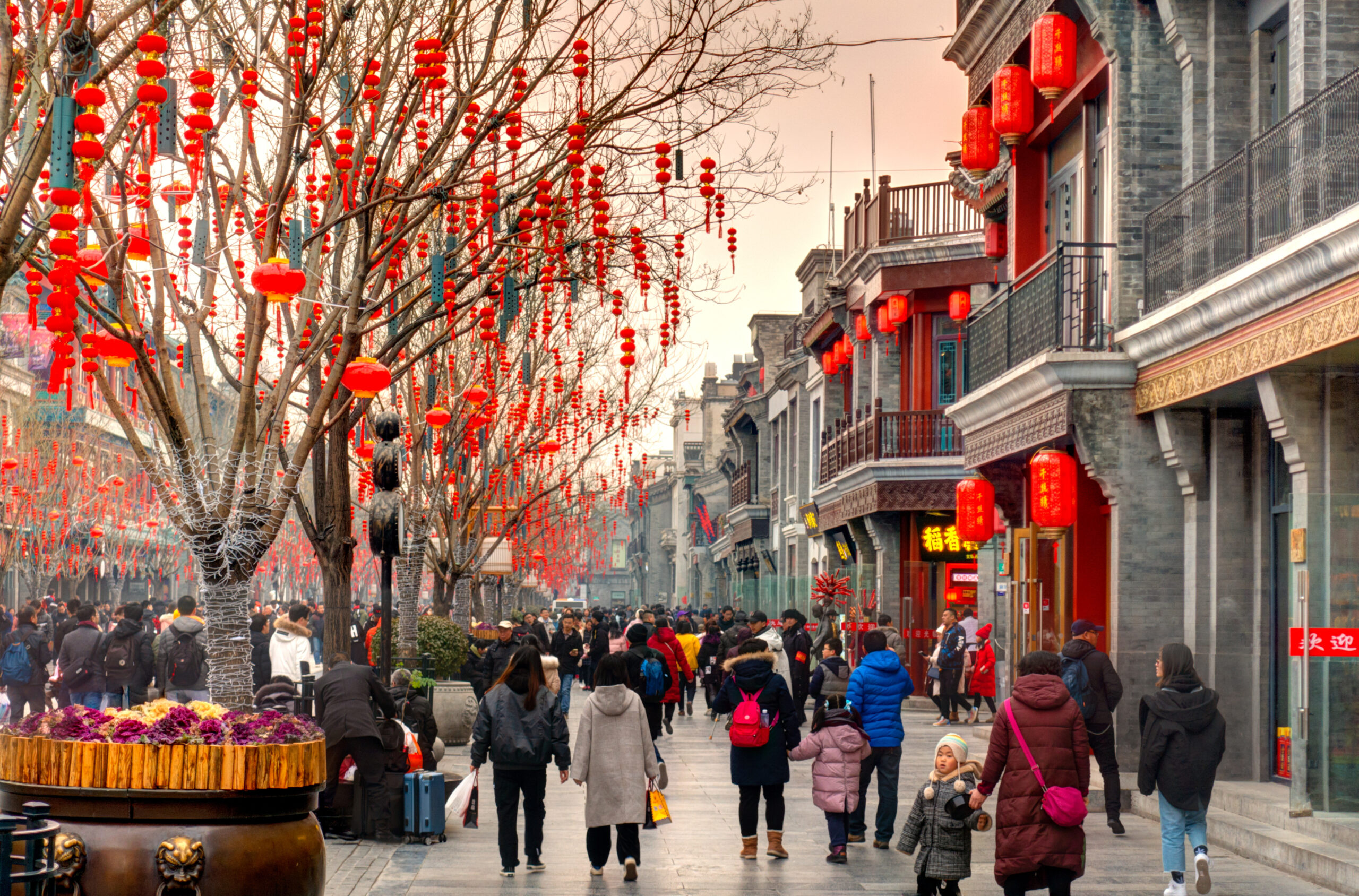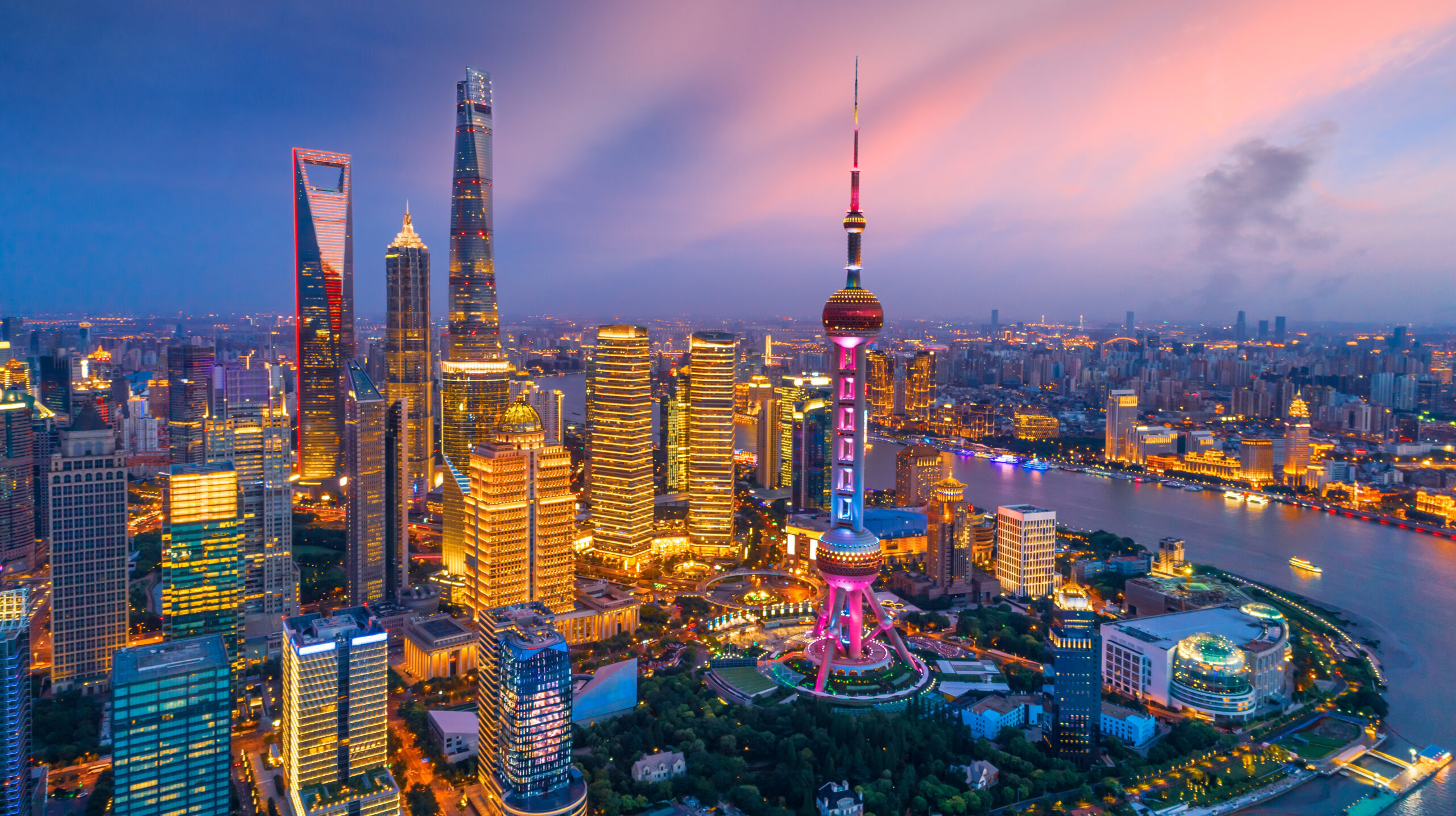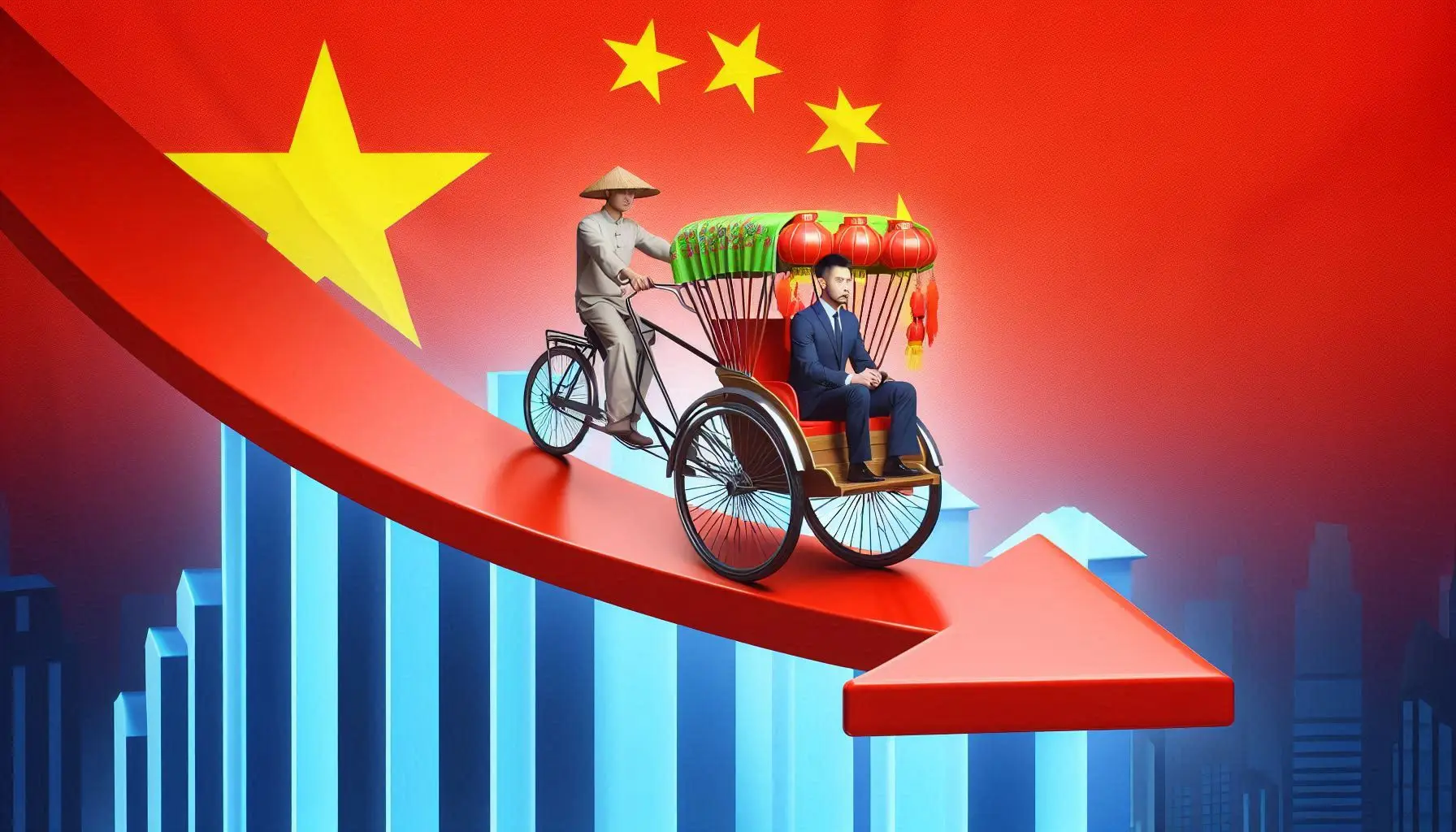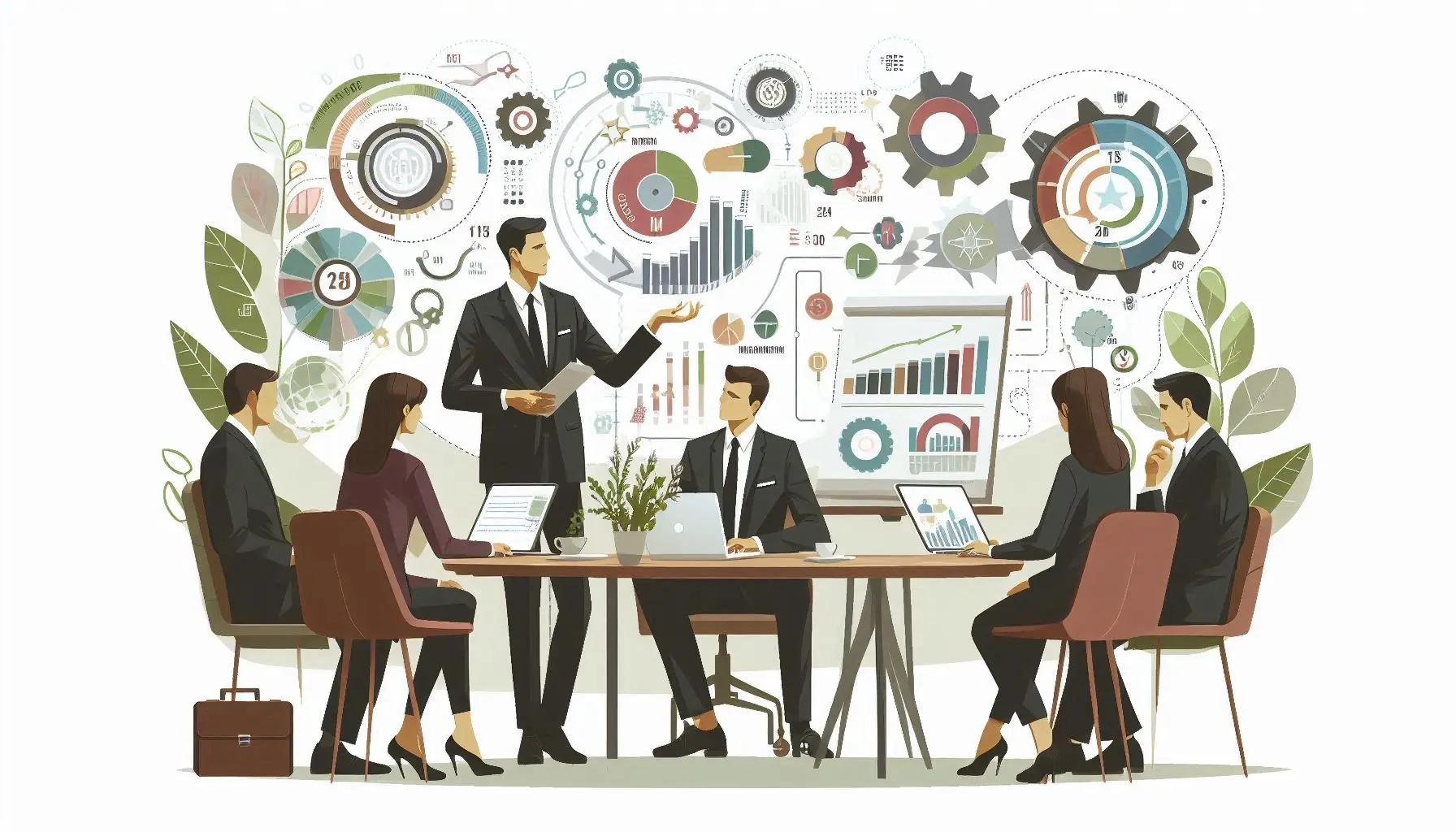Do I see a totally different China? Chinaforum Bayern’s Stefan Geiger on his trip to China
After 5 years without one single trip to China, Stefan Geiger, CEO of Chinaforum Bayern decided it is now the right timing to visit China again. He had wanted to travel more regularly to China, to visit the members there and feel the business vibes of China. Some of the members are based in China and don’t have chances to participate the offline events hosted by Chinaforum in Bavaria, Germany. But his trip was delayed by various reasons such as COVID travel restrictions. Finally, he was on the ground in China for two weeks in late November 2024.
While he was always told by his contacts and friends that China has changed a lot over the years, once in China, Geiger immediately sensed the familiarity accumulated from his previous study years in China and the previous trips. “Things haven’t changed that much and that dramatically,” he said. “But I do notice that the ordinary Chinese people seem to be less interested in communicating with foreigners”. Geiger shared that the first night after he arrived in Shanghai, he found a small and cozy restaurant for dinner and was asked to share table with a group of young Chinese. He recalled that his table neighbours were busy with their smart phones, and they had barely any exchange. “The Chinese people seem to be less curious nowadays.”
Photograph: Courtesy of Stefan Geiger, Chinaforum Bayern
“Does that mean that the Chinese are more introvert and more nationalistic, that they don’t want to talk to foreigners anymore”? I asked Geiger when we sat down to talk about the business and political environment in both China and Germany, the expanding role of geopolitics in business strategy and planning, and what he has observed from this trip. “I am not sure. I just felt the difference,” he said. Talking about foreigners being welcome in China, Geiger shared that he heard stories that usually when foreigners newly came to China, they would feel the hospitality immediately. But after a few years living in China, they don’t feel it anymore. “The reason might be: if people are in a foreign country for too long, then they are no longer so sensible,” he said.
During this trip Geiger managed to meet at least 3-4 members per day. The number of meetings sounded very ambitious – whoever has lived in Beijing or Shanghai knows how challenging the meeting and transport logistics can be in these mega cities. Geiger tried to at least schedule one meeting in the morning, one in the afternoon and one in the evening for exchange. I asked him about the new insights from those meetings. I emphasized “new” because, even Geiger doesn’t live in China, he understands China. “From my own eyes I don’t see that China changed a lot. There were less foreigners on the street. This was obvious. I saw less German cars on the street. There were a lot of Chinese brand cars. There were so many brands I didn’t know before. But I still could see BMW, Porsche, etc. I stayed in Chaoyang District in Beijing and near People’s square in Shanghai. The shopping malls were full. The shops were there – another observation in contrary to what I was told before. But this may be because I stayed in the city center. If I went to the suburb, I may have different impressions.
I managed to connect my German credit card with WeChat Pay, which was a triumphal experience and really a great help. All was very fascinating to me. I was like a Muggle trying to get a glimpse of the wizarding world,” said Geiger. “I found myself always starting my sentences with ‘how do I…’ like ‘how do I take the subway?’ and ‘how do I buy a train ticket?’ It seems that most of the questions are related to traffic as you can easily imagine a European’s feeling of being lost in a big city in China. Without a Chinese phone number, it was difficult to use certain apps. For example, I could not rent a bicycle or buy train tickets online. I talked to a taxi driver in Beijing and was surprised to hear that even the driver is affected by the current economic situation, because of less and less international travelers. He is earning much less money than before. “
But Geiger certainly saw the optimistic side of the Chinese economy: “When I arrived in Shanghai as I said at the first night, I was in a small grill restaurant at 11pm. It was full of young people and many people were still queuing for tables. It was interesting to see that the restaurant was still full at two or three o’clock in the morning. On the one hand the economy is not going well, but on the other hand the young people are still going out, meeting their friends and having fun time together.
Geiger was amazed by how cheap the public transport in China is, because of the government funding: “I took the subway from the airport to the city center in Shanghai. It only cost sixty cents, not even one euro. It gave everybody the perfect access to the public transport at a fair price. I think it is great. Germany should do the same. The lower cost of public transport might help to solve some severe problems that we already have in big German cities.
I also asked for his advice on how Chinese multinational companies can do better in Germany: “Trust your executives on the ground,” he said. “Those executives on the ground, either Germans or Chinese living in Germany for many years, have valuable insights on the market, local regulations, and the good business practice. I once heard a German senior executive complained to me that he suggested to his boss in China that the company should do some marketing about its products and raise the brand image. “No marketing, only selling” was the answer he got from the Chairman. The decision makers in China also had a sales target for German market, which was too high to achieve given the market conditions and the brand awareness. Eventually the German CEO quitted.
For Chinese companies looking at the European market, Geiger recommends that they should enhance the market understanding, including the regulations and the approval and scrutiny procedures, the labor market and the working culture, the local community, etc. They should have a long-term strategy and be prepared that in the first few years they might be losing money. “’Investment’ means that you need to invest for future. You don’t get the money back right away,” said Geiger.
“The mistrust is not only with the German executives. I also heard my Chinese members complain about the top-down or the micro-management by the German Headquarters. Things take place very quickly in China, but the Chinese management must wait for the decisions of their German colleagues, which sometimes take weeks. Some German executives would also expect the central guidelines to be executed without any adaptation for the local market. All those create not synergy but barriers to the business team’s performance,” Geiger said.
For the German companies operating in China, Geiger joked that they don’t need his advice. But he would urge them to contemplate how to deal with the Chinese competitions. He doesn’t see the trend that German companies are exiting. Instead, they are planning to invest more, to get stronger to face the competitions. The newly released Business Confidence Survey 2024/25 by the German Chamber of Commerce in China confirmed his opinion: 92% of German companies plan to continue their operations in China. Furthermore, 51% of German companies surveyed plan to increase investment in China within the next two years, many of those citing remaining competitive as the primary motivation.
According to the Financial Times, German direct investments in China reached a record high of €7.3bn in the first half of 2024, compared with €6.5bn for the whole of 2023, citing the Bundesbank, Germany’s central bank. “In the political front, the politicians talk about de-risking. But in the economic front, things are different,” Geiger said. “But I think the large part of the above-mentioned investments was made by big companies like BMW, Volkswagen, BASF, etc. Before Trump’s re-election, the investment directions by those companies in China were already set. Now it is even more so. If there is a trade war between China and the US, Europe might be implicated. Then it will be more difficult to expand in China, to send components and manpower to China. The companies need to be prepared for that scenario. ‘In China, for China’ is not an empty slogan. Worth to note that the Chinese business of many German companies is financed by their China operations. The German companies don’t send money from here, but their revenue in China can already support the financial needs for future investments in China.
“Anyway, for any companies entering new market, make good research and think about why you want to go to the new market. If a company is already under pressure in its home market, it doesn’t make sense for them to enter new market to try to compensate, because the new market won’t be a quick fix for their existing problems.”
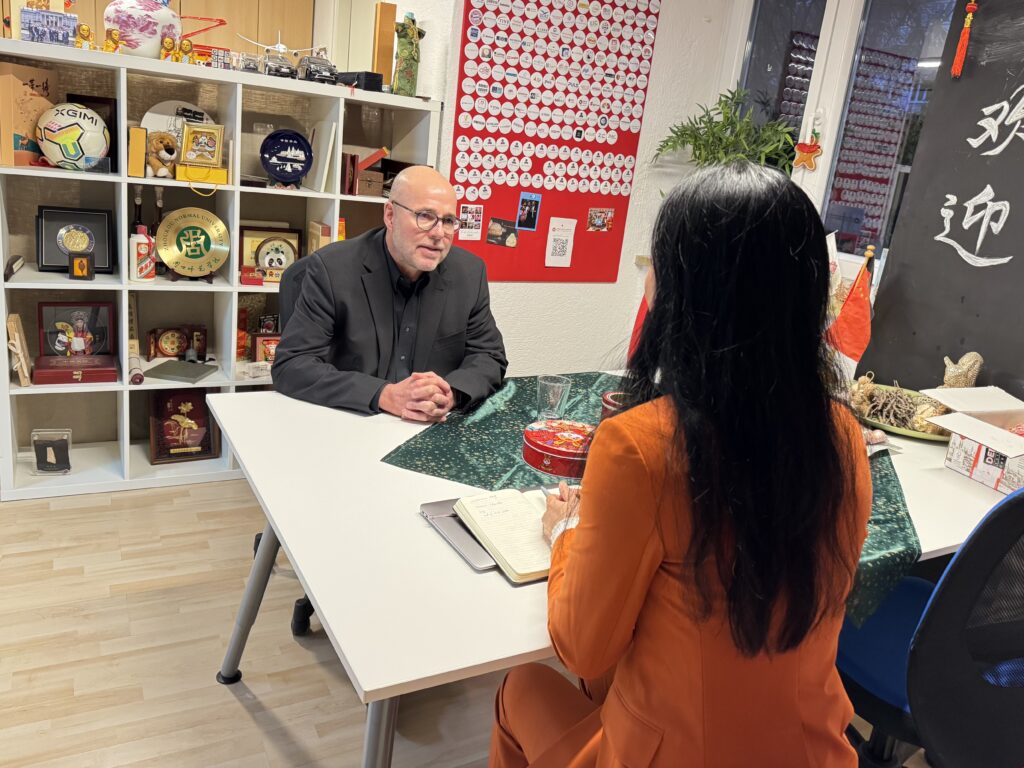
You were in China for two weeks. What left you the strongest impression?
Last time I was in China was late 2019, immediately before COVID. I was really expecting huge differences between my last visit and this time. I have chosen a right timing. When I was there, the German Chamber of Commerce held a three-day event in Beijing, the AHK Greater China Xceleration Days. I had the opportunity to listen to the discussions by the business leaders, executives and the representatives of international organizations. Some high-level Chinese government officials and the German Ambassador to China were there too. The event focused on economic topics and the economic exchange. It was a very successful event, with about 800 participants. I met many old friends and some of the members. It was really a good event for information and for networking.
But there was a critical moment: During the German Ambassador’s speech the representatives from China’s Ministry of Commerce left the venue, because they were upset by the political style of the speech by the German Ambassador. Not only the Chinese government representatives, but also the business executives were upset, because they were there hoping to get support from the governments. They don’t want de-coupling and de-risking. They are looking for the cooperation. Some critical topics mentioned by the Ambassador don’t have to be addressed at such an economic event, but at a more suitable political platform.
Of course, the politics and the economy cannot be separated. The regulations, laws and guidelines will influence the operations of German companies in both home and foreign markets. But the business community feels that the current policy direction in Germany is creating more barriers than providing support. In the very bad scenario, if the EU imposes a sanction on China, German companies cannot shy away from the problem but must endure the consequences. That would be a disaster for the German industry. I heard strong comments from some executives of the Chamber of Commerce and Industry in Germany that business leaders should voice their opposition to the politics set by Berlin.
Now in the German media, almost all the coverage on China is very negative. All the economic problems in Germany seem to be linked with China. China is the main reason. What is your view?
If we look closely at the coverage, we can see that the media are blaming China. The politicians are blaming China, but the industry isn’t. For example, for the auto import tariff debate, the German auto industry was lobbying against the tariff. The car makers know that in the end the higher tariffs will not solve the problem. What I hope to see is that in the future, German auto makers and the Chinese ones will work more closely together, to complement each other with their respective technology excellence. For example, Volkswagen and XPeng announced the technical collaboration to jointly develop E/E Architecture for Volkswagen’s EV platform for China. Volkswagen has the scale and XPeng has the software. I hope that there will be more of such cooperations so that both sides can benefit from them.
Many of the members, especially the middle-sized companies, talked a lot about the competition they are facing in China. For them, the mother companies in Germany need to decide whether they must go “all in” or they just simply quit. There is no middle ground. They need to invest more in automation, in marketing and sales. “Made in Germany” no longer enjoys the high reputation in China like before. If the Chinese competitors’ products are cheaper and have the same quality, it is difficult for the Germany companies. In some industries where the Chinese companies are late comers, the German companies already expect that the Chinese companies will be their main competitors in the next two to three years. Most of the member companies I talked to are in the machinery industry. Of course, the severeness of the competition depends on the industry.
How do you perceive the Chinese economy and the society today, any further insights from your trip?
Everyone expected that after COVID China’s economy would quickly recover. But now due to the real estate crisis, the ordinary people don’t want to spend money but to save for future. There are a lot of uncertainties. The job prospect in China is also not good. I heard from one contact that once a person loses his job, they will not be able to find new ones. Due to the high youth unemployment rate, once experienced professionals lose their jobs, they can only retire. Chinese employers seem to think that their jobs are not sophisticated. For the same salary, they tend to hire three fresh graduates than one experienced person.
For this year I don’t think the economy will improve much. Of course, the Chinese Government strived to release new measures to support the economy, but we will have to wait to see whether it works or not. The Chinese Government needs to take decisive measures and solve the issues of the local government debt. The small adjustments here and there don’t work anymore.
An interesting observation is that people living in Shanghai are more vocal than people living in Beijing. I was sitting with a few German company representatives in Shanghai. They shared that they are not satisfied with the political leaders in China now, daring not to mention the name. Again, I feel like in Harry Potter book, the name of Lord Voldemort was mentioned as “You-Know-Who”, “the Dark Lord” and “He-Who-Must-Not-Be-Named”, very strange. I realized that Shanghai people are more open to express their opinions due to the frustrations. They were sitting in the quarantine for three months and this terrible experience really changed their mind.
I also noticed that the censorship in China is very strong. I was talking with my contact face to face. She showed me two pictures of the former Chinese President Jiang Zemin and sent to me. But I didn’t get them. From her screen it showed that the pictures were sent, but I just didn’t get them.
How would you describe the Germany-China relationship now? It changed a lot in the past few years. And given the changes in the Germany-China relationship, what kind of role Chinaforum can play to help your German and Chinese members?
In politics it has already changed a lot, even before the COVID time. It was intense, but the partnership was still the middle point. Now the focus is more on the rival-competitor aspect. It is a pity to see. If our politicians in Berlin think that Germany could live without the China market, they are wrong. For example, on the supply chain issue, the German government prompts German companies to leave China and venture into countries in the Southeast Asia. But it might be even more difficult to scrutinize and control the supply chain in those countries. The situation is quite complicated. Now with Trump’s presidency, we expect things will become more difficult, also for Europe. Maybe it forces Europe to have its own standing and cooperate with China in a constructive way. But maybe it is just a wishful thinking.
We used to have more German members and now we are glad to see that we have more and more Chinese members. The ratio is about half and half. We had our member meeting two weeks ago. One member suggested that Chinaforum should actively talk to the German press about the positive cooperations between our Chinese and German members. Some members oppose to this suggestion, because we are not a political institution, but an economic and cultural organization. It is difficult because we don’t want to be misunderstood as promoting China in a political way.
Our influence might be still limited, but through our events we hope to give an objective picture on China and showcase the controversy through debates. Through our daily work, we want to support our members in their economic endeavours, help them expand and strengthen their network and find new partners. We want to promote the open talks and the link to the market, which are becoming more important, given the highly charged political sensitivity.
Do you find this insight piece helpful? We would love to hear your feedback!



